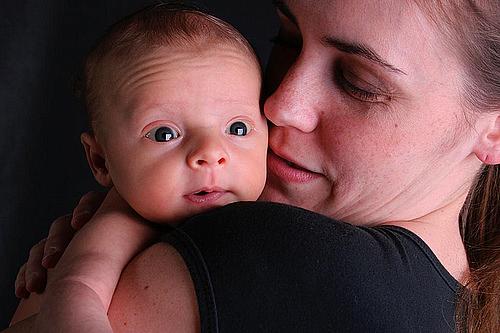New documentary series tries to bridge the chasm between early childhood science and U.S. policy

When it comes to conversation on children’s health, the past decade has been marked by what you might call the early childhood turn. Researchers, policy makers and health journalists have become increasingly attuned to the ways in which a child’s earliest experiences wield a powerful influence over brain development, emotional regulation and lifelong health. It turns out that many of things that matter most in setting up a child for success take place way earlier than we formerly thought and can involve things as simple as parents keeping their babies’ little brains bubbling away with a steady stream of back-and-forth interaction.
And yet aside from the intense focus on preschool and the debate over whether it makes a difference, it’s not clear that the emerging lessons from the science of early childhood have yet to permeate the national consciousness. Middle-class parents still obsess over their kids’ school systems and extracurricular portfolios, but you don’t quite yet hear parents bragging about their daily word counts or how they’re keeping their serve-and-return game strong.
That could begin to slowly change with the arrival of projects such as newly released documentary series “The Raising of America,” created by Larry Adelman and produced by California Newsreel and Vital Pictures. Over the course of five episodes (viewable online until November 30), the series lays out the emerging science of early childhood, profiles families struggling to support their kids and make ends meet and makes a case for national policies that do more to support overworked young families.
For journalists or policy folks who follow early childhood, much of this will not be new material. You will once again see footage of Edward Tronick’s famous “Still Face Experiment” and you will hear Harvard’s Jack Shonkoff, the dean of early childhood experts, explain in lucid terms how a young child’s emergency stress system — heart rate, blood pressure, blood sugar and inflammation are all activated — can get stuck in the “on” position when parents aren’t present to soothe nerves. “The parts of the brain that early on are associated with memory and simple learning, focusing attention, being able to solve problems – those parts are very vulnerable to disruption from chronic activation of the stress system,” Shonkoff says.
The filmmakers do a laudable service in getting these ideas out to a wider audience, most of whom have never heard of “toxic stress.” And the series does much more than this by showing how the lessons offered by the science on early childhood run up against the limits of U.S. policy and overstretched parents, many of whom are juggling low-wage jobs and a lack of good, affordable child care. This is, after all, a series with a strong, inherently political viewpoint: namely, America’s policies — particularly on family leave and child care — are grossly inadequate to ensure kids get the kind of attention and support they need in their first years.
Some of this involves a political history lesson. For instance, the documentary tells us that “every major economy on the planet guarantees paid maternity or family leave, except the United States” and then proceeds to recount the nine-year political battle required to pass the Family and Medical Leave Act, which was signed into law in 1993.
Viewers are then introduced to the research of Marilyn Essex at the University of Wisconsin, Madison, who led a 20-year study that found that high levels of parental stress early in life were correlated with higher levels of cortisol in their kids, who in turn tended to have more troubles in school. The film’s policy argument is that a more generous, paid family leave policy in the United States would go a long way toward assuaging the financial and time stress parents experience during those key early years, leaving more time for those critical early childhood interactions.
The country’s dearth of affordable, quality child care receives similar treatment, with a quick history lesson detailing just how close the United States came to signing into law the Comprehensive Child Development Act in 1971. Congress approved the act, which would have funded universal childcare and imposed standards, but President Nixon vetoed it. The United States now ranks 31st out of 45 nations on the availability of child care. When it comes to child care, military families have been more fortunate, benefitting from the passage of the Military Child Care Act of 1989. Military child care centers are now among the best in the nation, the film tells us, with higher-trained, better-paid staff, surprise inspections and accredited programs.
“The set of workforce policies we now have in place are a crushing burden on parents,” Robert H. Dugger, a former hedge fund investor who is a children’s policy advocate, says in the film.
Reasonable people might disagree on what better family policies should look like. The notion of any new entitlement program gaining traction in Congress these days seems far-fetched. But in offering a wide-ranging synthesis of early childhood science, policy and profiles of families, “The Raising of America” urgently reminds us that the status quo is leaving too many young children and families in the lurch. Other paths exist, as our own history suggests.
[Photo by makelessnoise via Flickr.]

